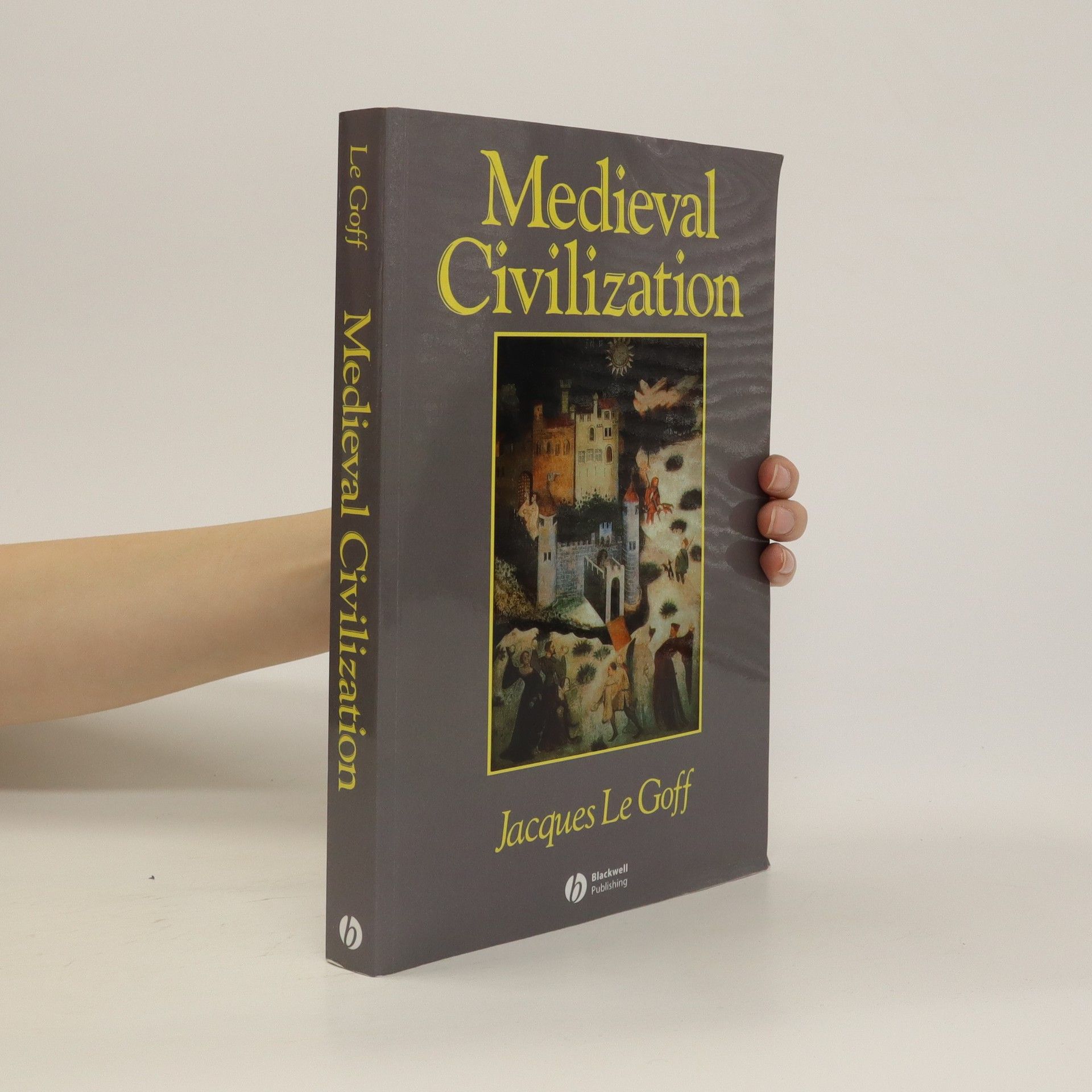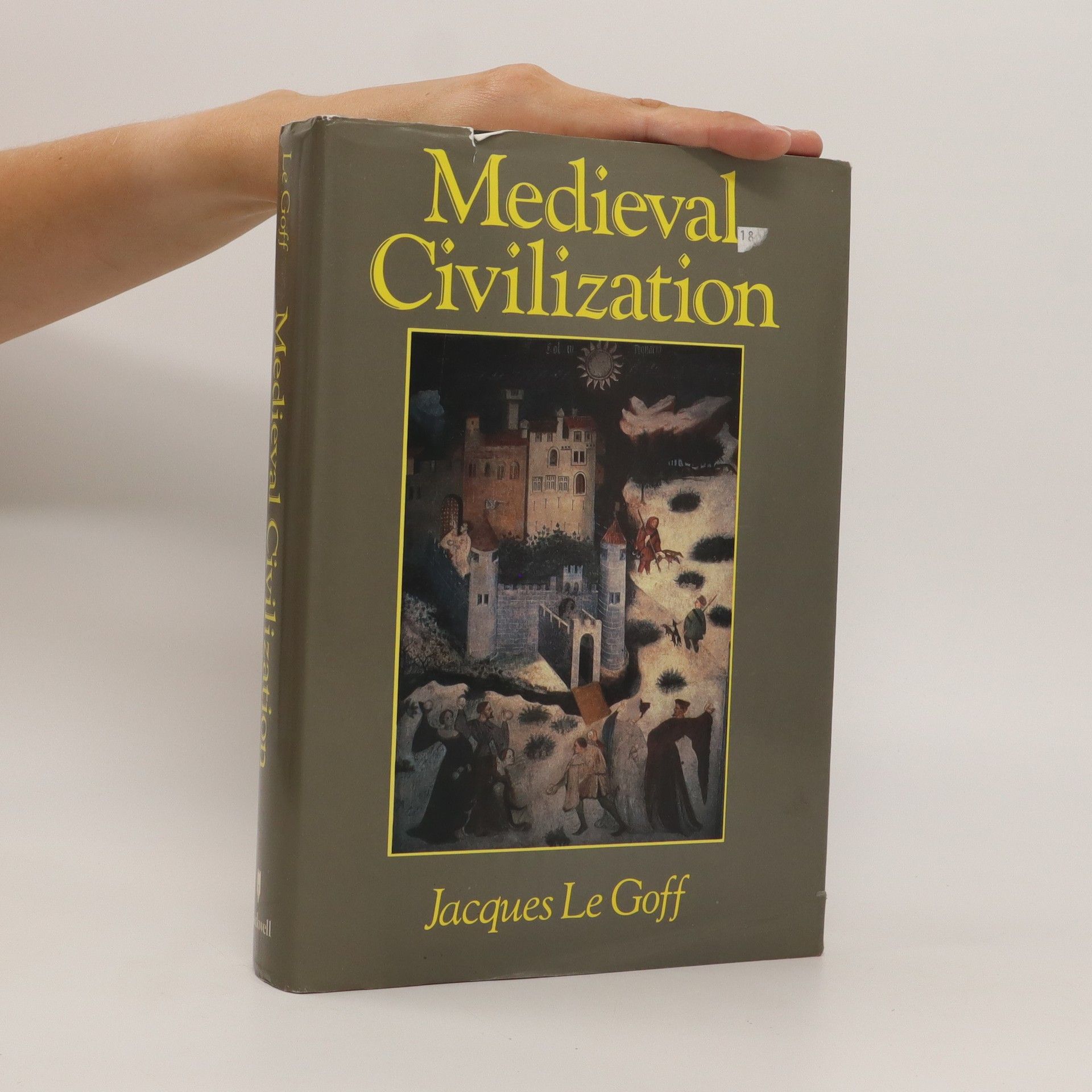Wereldbibliotheek: De cultuur van middeleeuws Europa
- 494bladzijden
- 18 uur lezen
Geschiedenis > Middeleeuwen
Le Goff, een productief mediëvist van internationale faam, wordt beschouwd als een belangrijk erfgenaam en voortzetter van de Annales-school. Zijn werk duikt diep in de historische antropologie van West-Europa tijdens de middeleeuwen. Le Goff betwistte met name de term "Middeleeuwen" zelf en de chronologie ervan, waarbij hij de prestaties en interne variaties van dit tijdperk benadrukte, met name door de aandacht te vestigen op de 12e-eeuwse Renaissance.







Geschiedenis > Middeleeuwen
Canonized in 1297 as Saint Louis, King Louis IX of France (1214-1270) was the central figure of Christendom in the thirteenth century. He ruled when France was at the height of power; he commanded the largest army in Europe and controlled the wealthiest kingdom. This title describes the... číst celé
In this outstanding and celebrated biography, the distinguished medievalist Jacques Le Goff paints a fascinating picture of the life of Francis of Assisi. This Routledge Classics edition includes a new Foreword by Sean L. Field.
Consisting of two parts, this volume is a one thousand-year history of the civilization of Western Europe. Part one narrates the entire period from the 5th to the 15th century, part two analyzes the origins of early medieval ideas of culture and religion.
This one thousand year history of the civilization of western Europe has already been recognized in France as a scholarly contribution of the highest order and as a popular classic. Jacques Le Goff has written a book which will not only be read by generations of students and historians, but which will delight and inform all those interested in the history of medieval Europe. Part one, Historical Evolution , is a narrative account of the entire period, from the barbarian settlement of Roman Europe in the fifth, sixth and seventh centuries to the war-torn crises of Christian Europe in the fourteenth and fifteenth centuries. Part two, Medieval Civilization , is analytical, concerned with the origins of early medieval ideas of culture and religion, the constraints of time and space in a pre-industrial world and the reconstruction of the lives and sensibilities of the people during this long period. Medieval Civilization combines the narrative and descriptive power characteristic of Anglo-Saxon scholarship with the sensitivity and insight of the French historical tradition.
In this brillant meditation on conceptions of history, Le Goff traces the evolution of the historian's craft. Examining real and imagined oppositions between past and present, ancient and modern, oral and written history, History and Memory reveals the strands of continuity that have characterized historiography from ancient Mesopotamia to modern Europe.
In this book, one of the most esteemed contemporary historians of the Middle Ages presents a concise examination of the problem that usury posed for the medieval Church, which had long denounced the lending of money for interest. Jacques Le Goff describes how, as the structure of economic life inevitably began to include financial loans, the Church refashioned its ideology in order to condemn the usurer not to hell but merely to purgatory. Le Goff is in the forefront of a history that studies “the deeply rooted and the slowly changing.” As one keenly aware of the inertia of older societies, he is all the more able to delineate for us the disruptive forces of change.
In this ground-breaking new study,Jacques Le Goff, arguably the leading medievalist of his generation, presents his view of the primacy of the Middle Ages in the development of European history. [A] superb and necessary book.
A history of the fabled heroes and miracles of the Middle Ages.
How The Golden Legend shaped the medieval imagination It is impossible to understand the Middle Ages without grasping the importance of The Golden Legend, the most popular medieval collection of saints' lives. Assembled in the thirteenth century by Genoese archbishop Jacobus de Voragine, the book became the medieval equivalent of a bestseller. In Search of Sacred Time is the first comprehensive history and interpretation of this crucial book. Jacques Le Goff, who was one of the world's most renowned medievalists, provides a lucid and compelling account that shows how The Golden Legend Christianized time itself, reconciling human and divine temporality. Authoritative, eloquent, and original, In Search of Sacred Time is a major reinterpretation of a book that is central to comprehending the medieval imagination.